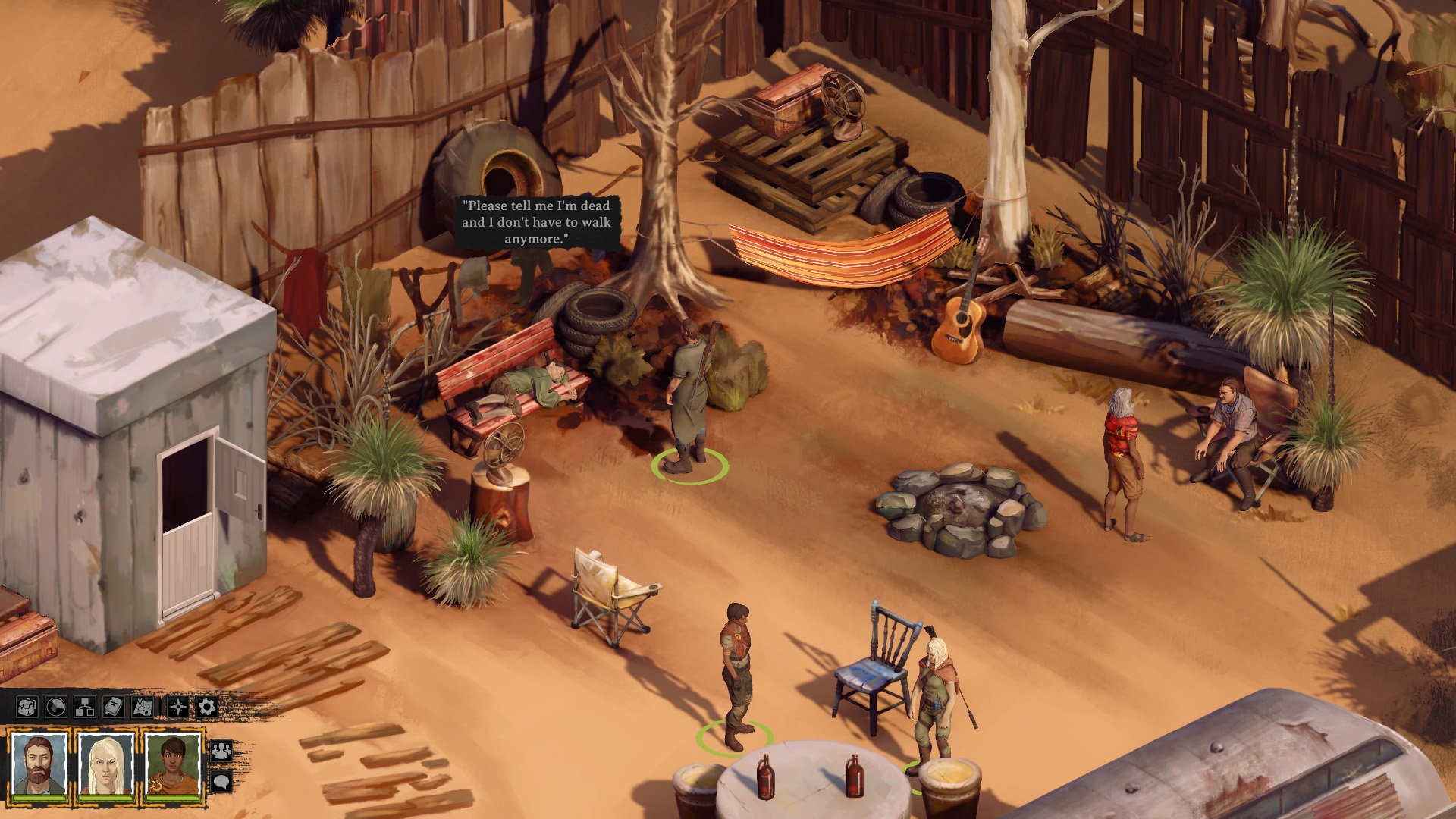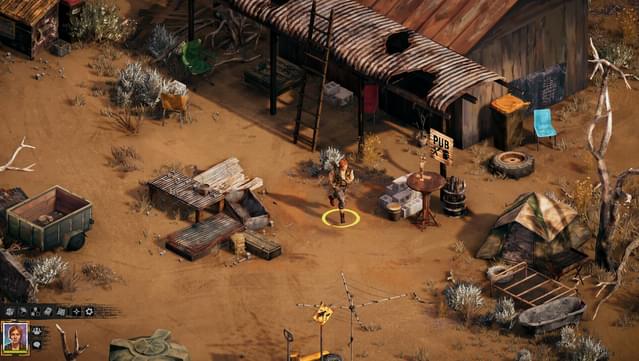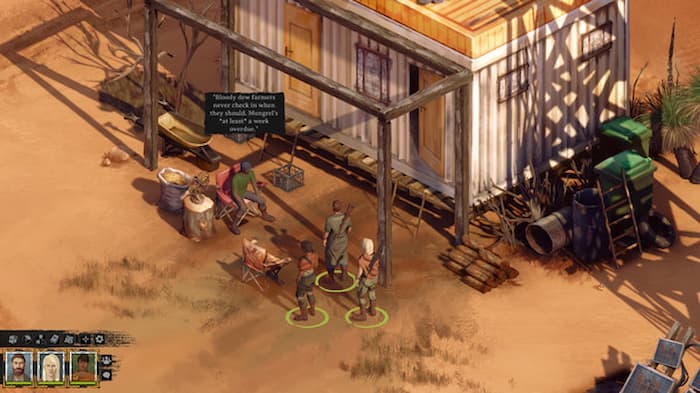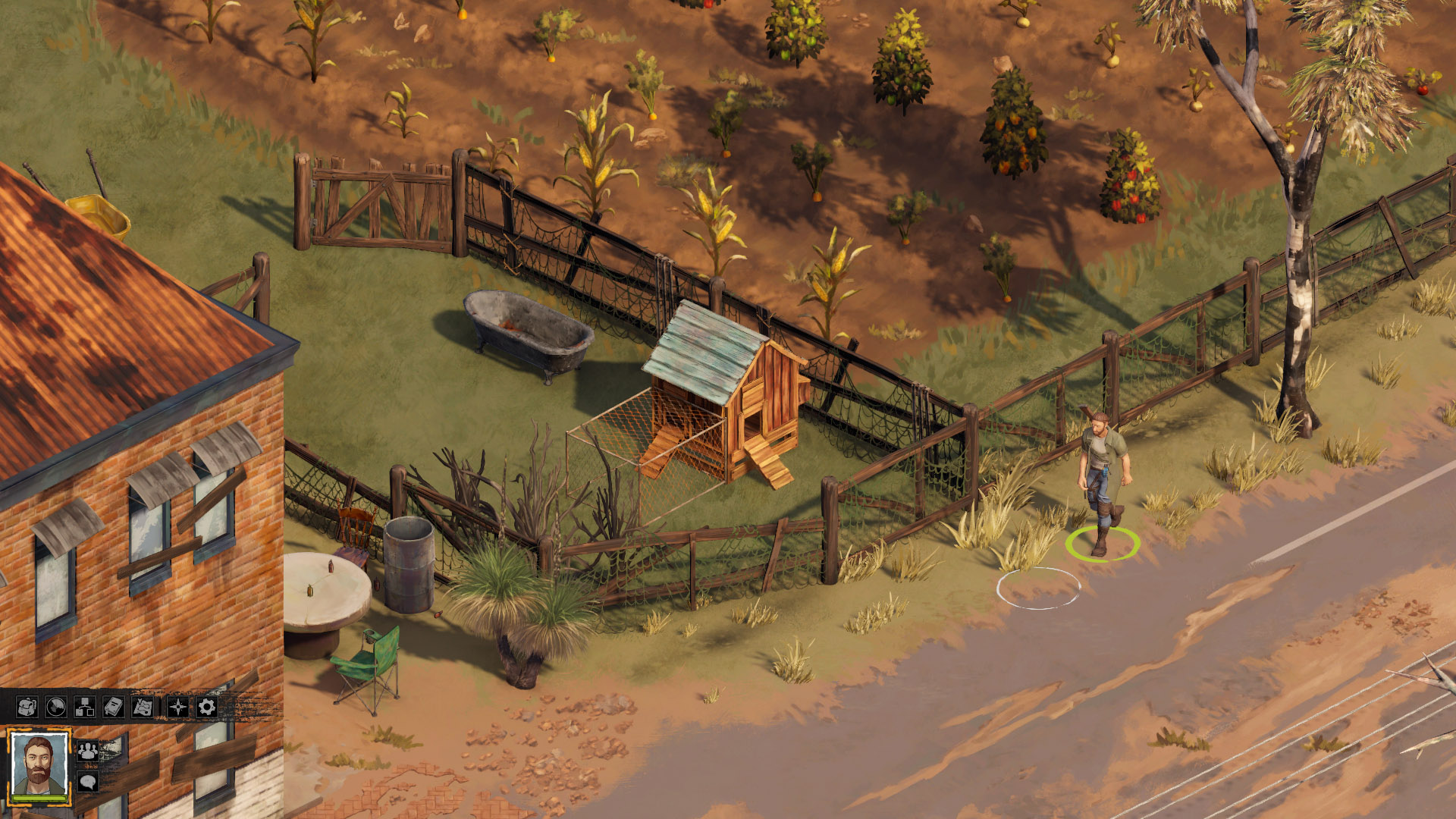Broken Roads – Wasteland Walkabout
As I get older, I find that I am rarely surprised by new games — I’m not saying that everything is a rehash of something that came before, but I guess I feel that we’re running out of themes, mechanics and settings and that leads to repetition. Whilst I’ve seen plenty of CRPG’s in my time, Broken Roads delivers a unique experience thanks to the location in which it takes place — Western Australia. With a strong narrative, decent combat and an interesting “world view” system, Broken Roads might be just the tonic for the cynical among you.
In the past I’ve found that some CRPG’s can spread themselves a little thin over too many systems and features, often delivering a load of content and ideas, but lacking in depth. Broken Roads almost goes the other way, keeping things like character creation, exploration and combat relatively simple, whilst doubling down on a strong story with a good script and decent voice acting.

Where Disco Elysium veered entirely towards story and dialogue (and was all the better for it), Broken Roads treads the line somewhere between more combat-focussed CRPG’s and narrative, but with a clear focus on resolutions outside combat. This is reflected in some of the ways that the game sets up from the outset — with one of the most interesting character creation features being the “punt” skill, which basically allows players to temporarily augment an existing skill that is just below a skill test threshold.
Whether you choose a character with a bartering, farming or mercenary background, you’ll always begin the game in the same way — with an introduction to post-apocalypse Australia being delivered through a small group of friendly scouts who need you to escort some of their number to the local town. From here, you’ll learn that in this world both food and water are scarce, but that humanity has found a way forward by forming small, tight knit communities that interact in limited ways, largely looking after themselves with little thought for outsiders.

There are obviously exceptions to this and you’ll also quickly learn that some of the characters have strong views linked to their worldview — which is also something you’ll manage for your own character. A utilitarian character, for example, will have a worldview that drives them to preserve life wherever it benefits the group, whilst a nihilist will remove anyone that gets in their way. A humanist will preserve life no matter what, whilst a machiavellian is always looking to gain an edge.
You don’t choose one of these paths specifically. Instead, the player will swing their moral compass one way or another based on how they deal with different situations. With a few choices made, and assuming you lean into one quadrant over the others, your worldview will narrow and your character will possibly lose access to choices outside their consideration, whilst also gaining access to “higher tier” choices within whatever quadrant they are focussing on.

One of the best things about Broken Roads is how this system plays into different choices and relationships within the game. You may find characters that you like — or want to like — diverging from your own character due to conflicting worldviews, and the way this is used to conclude certain quests was certainly interesting to me. It’s not all upside here though, because whilst questlines often close out in satisfying ways, I wish more had been made of the system with respect to specific character interactions within the party — which seem to be pretty “surface level” rather than gameplay impacting.
As Broken Roads develops, you’ll find yourself involved in an ever more expansive plot that seems to begin with some localised conflict between settlements, but quickly develops into something much bigger. Given that Broken Roads is not that long, I was quite surprised to discover how broad the story beats end up — with some quite crazy ideas and mechanics coming into play late on.

As I’ve already mentioned, combat is not intended to be the focus for Broken Roads, but it is nonetheless present. Whether you’re fighting raiders, mutant kangaroos or even giant spiders, the systems play out in the same way. This is classic turn-based, isometric combat fayre — nothing more and nothing less. Enemies often behave in a fairly rudimentary way with little of what I would call strategy or tactics, favouring mostly direct assaults on whatever party member is closest.
If I am completely honest, I feel as if Broken Roads were perhaps not meant to have combat in it at all, and there are a few sequences where I didn’t think a fight made sense, and others where I thought it would have. Almost as if certain fights had been forced into the narrative, whilst others (which seemed as though they were inevitable) were just replaced with a face to black and then the party appears somewhere else talking about how ecstatic/disappointed they are about a certain outcome that we were never involved in.

This is a little bit true of exploration too, albeit less so. Broken Roads never develops into a proper open world or one that you truly explore. Instead, you navigate a pinboard map with various locations called out on it — and whilst you absolutely can discover new places and visit them, the sense of discovery isn’t quite as grand as it was in games like Fallout. I said earlier that Broken Roads did well to avoid packing in too much, and I think I stand by that — exploration here works well enough, and I am glad that I didn’t have to spend an additional two or three hours trudging through desert between points of interest.
Overall then, Broken Roads is generally a successful narrative RPG with some light combat tacked onto it. You definitely shouldn’t come here hoping to experience the very best tactical combat experience, and if anything, Broken Roads is the opposite. If you really liked Disco Elysium or any game like it, then Broken Roads unique setting, good dialogue and exploration of Australian culture makes it interesting enough to justify the purchase, although for me it stands out a little at north of £30.
Broken Roads is available on PlayStation, Xbox and PC.
Comments are closed.